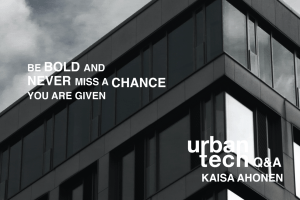What is your most surprising prediction about cities?

I feel like there are certain predictions that many of us can agree on, such as huge changes in terms of mobility (car-free cities, 15-minute-cities, etc.). As well as the future of city centers and commercial areas, and the rise of a shared economy in an urban sense (co-living, shared services, etc.). All of which would make cities more sustainable in the long haul.
But how do we tackle the climate crisis in cities when it is already happening?! We have just witnessed massive floodwaters in Germany and other Western European countries that destroyed towns and claimed the lives of many. How could we have prevented these dire consequences? How are we to protect against climate catastrophes in the short and long term (if we fail to prevent them in the first place) and how could urbantech help? What role can technology actually play in warning citizens if natural disasters cause electricity shortages? These dramatic effects of climate change will become predominant in cities and require radical rethinking and a new political agenda.
Who is the person that most influenced the way you think about cities and technology?
Indy Johar‘s multidisciplinary approach and Leslie Kern‘s perspective on power relations have impacted my thinking about cities greatly.
What 2-3 books / podcasts would you recommend?
I bet these have come up a couple of times already, but my recommendation would be:
- Feminist City: Claiming Space in the Man-Made World by Leslie Kern
- Doughnut Economics: 7 Ways to Think Like a 21st-Century Economist by Kate Raworth
- Monocle’s podcast ‘The Urbanist‘ always features interesting guests!
Where’s the best place for new ideas?
A place where people of diverse backgrounds and disciplines come together! I feel most inspired through discussions, be it at work, at a party or on vacation. A change of perspective always sparks new ideas.
Who inspires you?
At Cross Innovation Hub, we frequently collaborate with creatives from different disciplines. Last year, we conducted interviews with 11 creatives, representing the 11 different submarkets of the Cultural and Creative Industries – listening to their way of thinking and their perspectives on work, creativity and life in general deeply inspired me.
What are the skills we’ll need in 10 years?
I’d go for a generalist mindset – the skills to recombine, synthesize, visualize, empathize, connect and adapt to ever-changing circumstances. Also, I believe that circular thinking and systems thinking will become essential.
What advice would you give to your younger self?
Follow your interests and take time to develop them.
What is your call to action?
Cross-Innovate! The challenges we face are too complex to be solved by one discipline, company, sector or industry alone. Get in touch if you’re interested to learn more about our approach to Cross Innovation.




